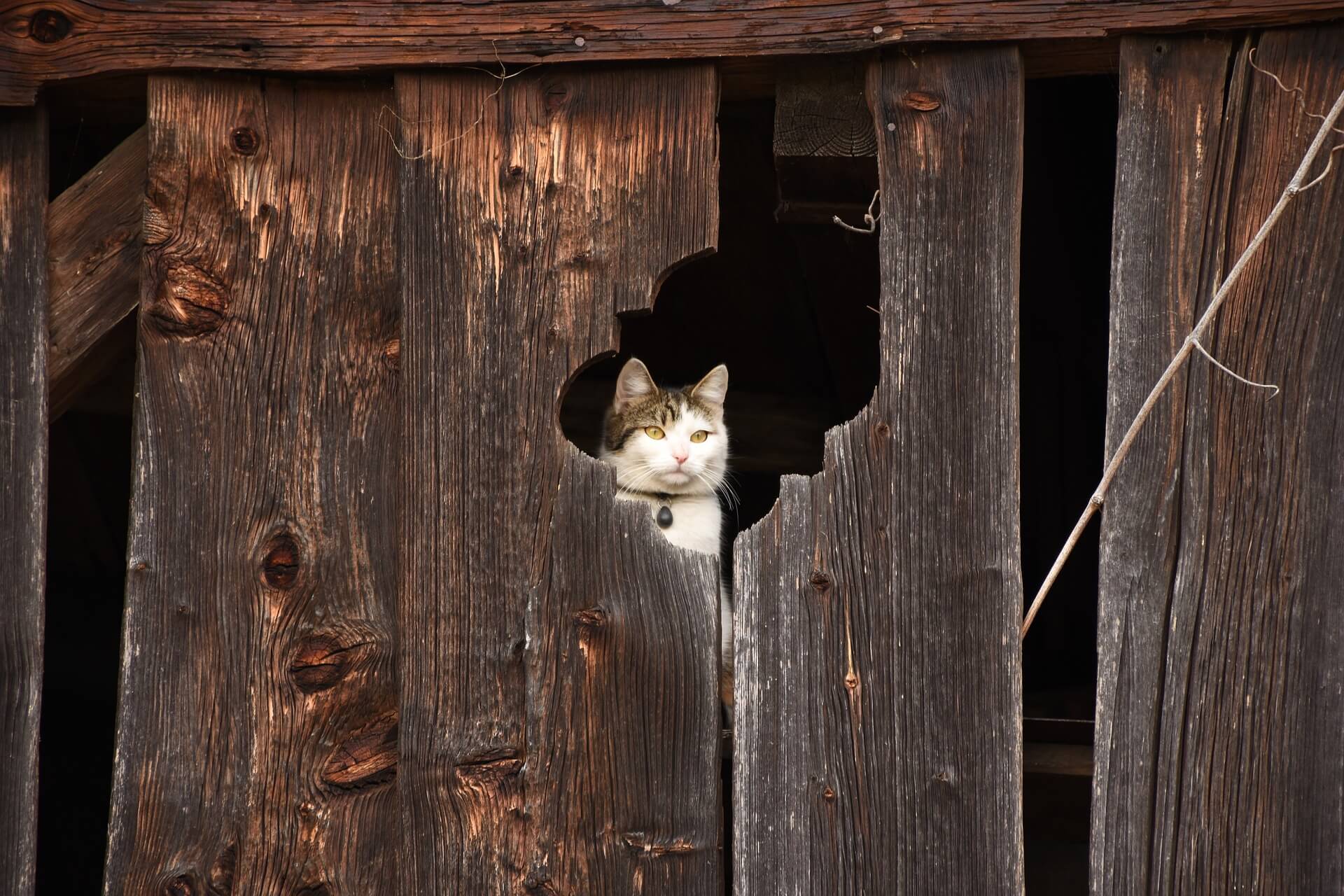Can Cats Predict The Weather?

The fact that animals can sense natural disasters and weather well before they occur is well-known. We believe that animals have heightened senses such as smell and hearing, and thus they may possess an innate ability to react to weather quicker than human. They can hear thunder and wind, feel trembles in the earth and sense pressure changes long before human counterparts. So, can cats predict the weather?
A cat’s sense of hearing is remarkably superior to that of humans, as we know it. Humans hear on average sounds that range from 20 hertz to 20000 hertz, while cats can hear sounds up to 64000 hertz. Ears are sensible to changes in the barometric pressure, thus cats can sense any abnormal variations that are linked with extreme weather and also immediately feel the urge to seek shelter for their survival – this is why some of the cats may start to display anxious behaviour before the thunder begins.
Did you know that a cat’s sense of smell is 14 times stronger than a human’s? Perhaps they can smell incoming rain with their keen senses! Cats are natural predators with senses that allow them to be finely tuned into their environment. Their senses are more powerful than humans. If you are looking for a more reliable source for accurate weather predictions, look no further than your feline friend!
Read More: How Does Rain Affect Cats?
Is There Any Proof?
Is there any scientific proof that cats have a sixth sense about meteorological conditions? Perhaps these examples of animal instinct can provide insight into this question. For instance, when the 2005 tsunami struck the coast of Sri Lanka, there are over 100,000 people were killed, but only a handful of animals, despite the wave devastating the wildlife reserve.
Before major hurricanes, land animals move inland and insects hide in trees and under rocks. During the Haicheng earthquake in the 1970s, animals were noted to behave strangely – for example, snakes woke from hibernation and evacuated their burrows, only to freeze as they tried to escape.
According to Seeker, a survey found that six or more days before the devastating earthquake, some cats engaged in unusual behaviors and became more stressed out. The cats began “trembling, being restless and escaping”. The researchers believe that felines may sense quakes ahead of time because they have better hearing range than humans.
Also, they might be able to detect changes in atmospheric pressure, ground deformation and gravity. In addition, a cat’s ability to sense impending weather changes served as a tool by fisherman and sailors from the 1700s until the early 20th century, according to The Nest. If the ship’s resident cats show unusual behaviours such as attempting to jump ship, repeatedly pawing at their faces or carrying their kittens off the ship before sailing, the sailors will sometimes refuse to set sail at all – their unusual behaviours were interpreted by the sailors as a warning.
Predictions Your Cat May Display
Listen to your pets when it comes to the weather. According to PetHelpful, if your feline friend becomes antsy or even hisses at you, it could indicate an earthquake. If she washes over both ears, there will be rain. A cat sleeping with all four paws tucked under means cold weather, while a frisky cat means the wind will pick up. It could mean a bad storm If your lovable cat suddenly bites or hisses at you. If she starts scratching more than usual, it could mean warm weather coming.
On the other hand, Dunwoody’s Weather Proverbs advised people to take cues from the behavior of animals to deduce future weather conditions. Here are some of Dunwoody’s government-approved theories on how cats predict the weather.
- If a cat sneezes, grab your umbrella.
- When cats lie on their backs with their mouths turned up, a storm is apparently coming.
- A snoring cat means foul weather.
- If a cat is washing its face with its back to the fire, it means a thaw is coming.







